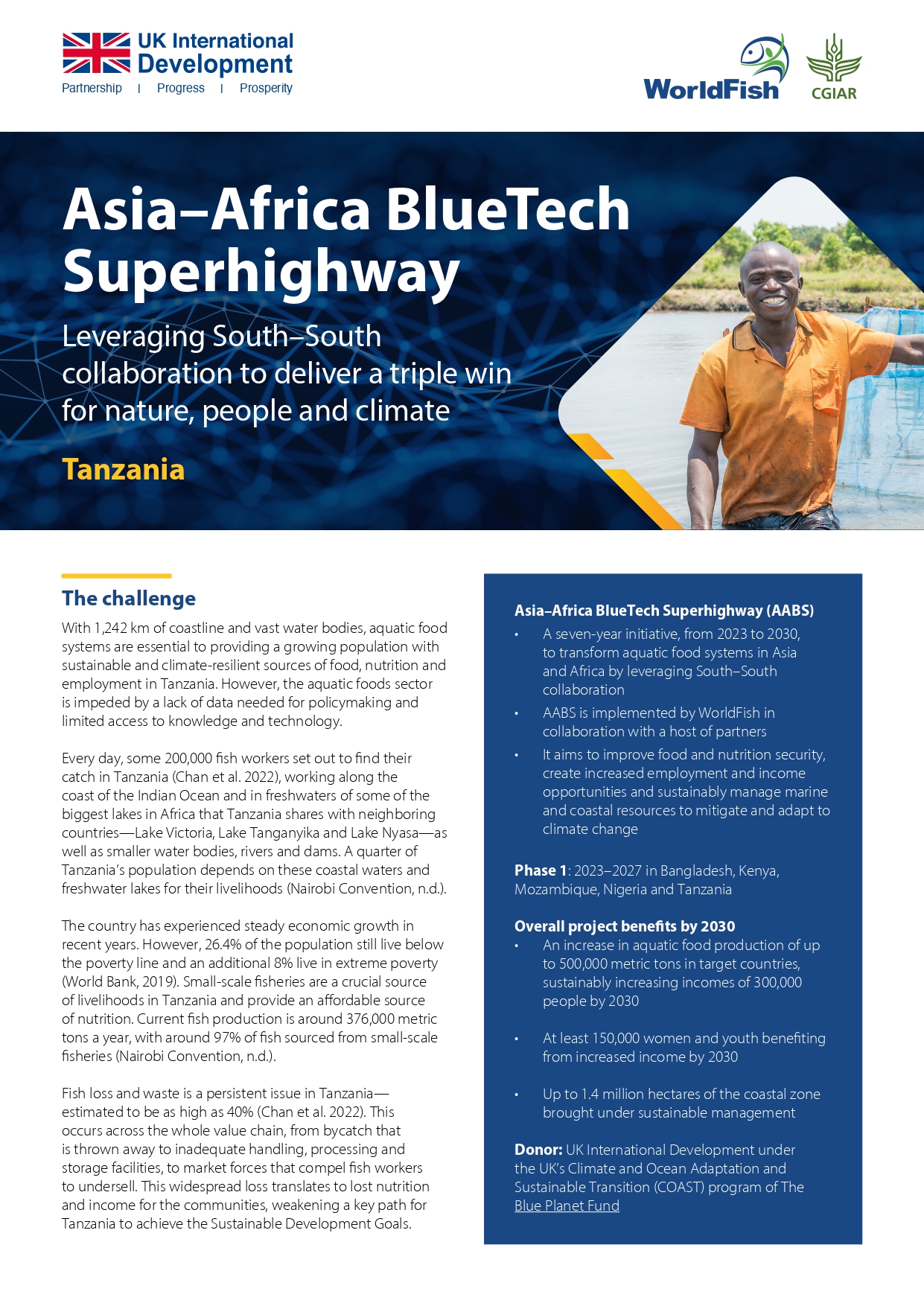The challenge for Tanzania’s aquatic food systems
With 1,242 km of coastline and vast water bodies, aquatic food systems are essential to providing a growing population with sustainable and climate-resilient sources of food, nutrition and employment in Tanzania. However, the aquatic foods sector is impeded by a lack of data needed for policymaking and limited access to knowledge and technology.
Every day, some 200,000 fish workers set out to find their catch in Tanzania, working along the coast of the Indian Ocean and in freshwaters of some of the biggest lakes in Africa that Tanzania shares with neighboring countries—Lake Victoria, Lake Tanganyika and Lake Nyasa—as well as smaller water bodies, rivers and dams. A quarter of Tanzania’s population depends on these coastal waters and freshwater lakes for their livelihoods.
The country has experienced steady economic growth in recent years. However, 26.4% of the population still live below the poverty line and an additional 8% in extreme poverty. Small-scale fisheries are a crucial source of livelihoods in Tanzania and provide an affordable source of nutrition. Current fish production is around 376,000 metric tons a year, with around 97% of fish sourced from small-scale fisheries.
Fish loss and waste is a persistent issue in Tanzania— estimated to be as high as 40%. This occurs across the whole value chain, from bycatch that is thrown away to inadequate handling, processing and storage facilities, to market forces that compel fish workers to undersell. This widespread loss translates to lost nutrition and income for the communities, weakening a key path for Tanzania to achieve the Sustainable Development Goals.
The solution: Asia–Africa BlueTech Superhighway in Tanzania
Asia–Africa BlueTech Superhighway (AABS) will help Tanzania address its fisheries and aquaculture challenges by leveraging South–South collaboration to improve sustainability, resilience and prosperity in coastal communities. Through evidence-based models and
partnerships, AABS will enhance the adaptive capacities of small-scale fish workers and farmers, mitigating the effects of climate change and increasing the sustainability of fish production. By focusing on Tanzania’s vulnerable coastal regions, the initiative will not only support the government’s goals but also ensure that the livelihoods of these communities are more secure and equitable.
AABS is implementing three key areas of work in Tanzania:
- Digital Coasts—co-creating and scaling out contextualized digital information systems for small-scale fisheries.
- Climate-Smart Technologies for Reducing Aquatic Food Loss and Waste—scaling affordable, accessible climate-smart food preservation, processing and storage technologies to reduce aquatic food loss and waste.
- Incentives for Coastal Conservation and Fisheries Management—assessing, strengthening and scaling more effective and equitable incentives for coastal conservation and fisheries management.
For more information on how each work package will improve Tanzania’s aquatic food systems, read the full brief.
